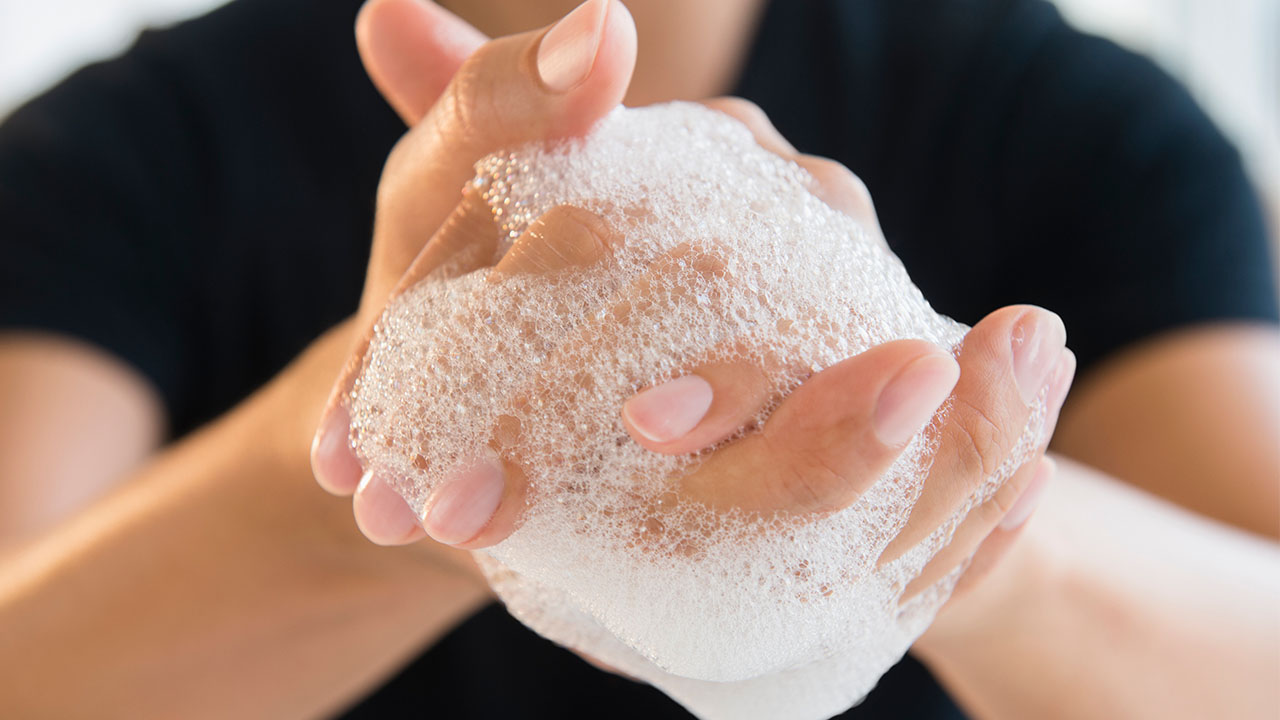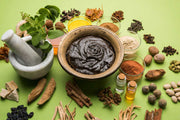Maintaining a strong immune system is essential for overall health and well-being. Our immune system plays a crucial role in protecting us from viruses, bacteria, and other harmful pathogens that can make us sick. While there are many ways to boost our immune system, some people turn to supplements or medication. However, there are also natural ways to strengthen our immune system that don't require any special products.
In this article, we'll explore 10 easy ways to boost your immune system naturally. These tips are simple, effective, and can be incorporated into your daily routine. By following these suggestions, you can help support your immune system and reduce your risk of getting sick.
Get Enough Sleep
Getting enough sleep is one of the most important things you can do to boost your immune system naturally. During sleep, your body produces cytokines, a type of protein that helps fight infection, inflammation, and stress. Lack of sleep can decrease the production of cytokines, making it harder for your body to fight off infections and illnesses.
Experts recommend that adults aim for 7-8 hours of sleep per night. To improve your sleep habits, try to establish a regular sleep schedule, avoid caffeine and alcohol before bedtime, and create a relaxing sleep environment by reducing noise and light. If you have trouble falling asleep, consider practicing relaxation techniques such as deep breathing or meditation. Getting enough sleep not only helps your immune system but also improves your overall health and well-being.

Eat a Healthy Diet
Eating a healthy and balanced diet is one of the most important things you can do to boost your immune system. A diet that is rich in nutrients, vitamins, and minerals helps your body produce the cells and molecules necessary to fight off infections and diseases.
Here are some tips for eating a healthy diet:
-
Eat a variety of fruits and vegetables: These are rich in vitamins, minerals, and antioxidants that help to strengthen your immune system.
-
Choose lean proteins: Lean proteins like chicken, fish, and legumes provide the building blocks for immune cells and help to fight off infections.
-
Limit processed foods: Processed foods are often high in sugar, salt, and unhealthy fats, which can weaken your immune system over time.
-
Avoid excess alcohol and caffeine: Too much alcohol and caffeine can disrupt your sleep and weaken your immune system.
-
Stay hydrated: Drinking plenty of water and staying hydrated helps to flush out toxins from your body and supports the proper functioning of your immune system.
By making these dietary changes, you can help to boost your immune system naturally and stay healthy.
Exercise Regularly
Regular exercise not only helps to maintain a healthy weight but also boosts the immune system. Exercise can stimulate the production of white blood cells, which are important in fighting infections. It can also improve circulation, allowing immune cells to move more freely throughout the body.
The type of exercise doesn't have to be intense. Even moderate activities like brisk walking, cycling, or swimming can help. Aim for at least 30 minutes of moderate exercise most days of the week.
In addition to boosting immunity, regular exercise has numerous other health benefits, including reducing the risk of chronic diseases like heart disease, diabetes, and certain types of cancer.

Manage Stress
Stress is a common factor in our daily lives that can impact our immune system. When we experience stress, our body releases cortisol, a hormone that can suppress our immune function. Therefore, managing stress is crucial in maintaining a healthy immune system. Here are some tips to help you manage stress:
-
Practice relaxation techniques: Deep breathing, meditation, and yoga are all effective relaxation techniques that can help reduce stress.
-
Exercise regularly: Exercise not only helps to boost our immune system but also acts as a stress reliever. Aim for at least 30 minutes of moderate exercise per day.
-
Get enough sleep: Lack of sleep can increase stress levels and weaken the immune system. Make sure to get 7-9 hours of sleep per night.
-
Connect with loved ones: Social support can help reduce stress levels. Reach out to friends and family to share your thoughts and feelings.
-
Prioritize tasks: Make a to-do list and prioritize tasks to avoid feeling overwhelmed.
-
Take breaks: Take short breaks throughout the day to rest and recharge.
-
Seek professional help: If you are struggling to manage stress, consider seeking help from a mental health professional.
By managing stress effectively, we can improve our overall health and boost our immune system's ability to fight off infections.
Stay Hydrated
Drinking enough water is essential for a healthy immune system. Water helps flush out toxins, keeps the body hydrated, and helps carry oxygen to the cells. When the body is dehydrated, it becomes more susceptible to illnesses and infections.
To stay hydrated, it is recommended to drink at least eight 8-ounce glasses of water per day. However, the amount of water needed may vary depending on factors such as age, gender, and activity level. Additionally, foods with high water content such as fruits and vegetables can also contribute to overall hydration levels.
It is important to note that other drinks such as soda, coffee, and alcohol can have a dehydrating effect on the body. It is best to limit consumption of these drinks and opt for water as the main source of hydration.

Take Probiotics
Probiotics are live bacteria and yeasts that are good for your health, especially your digestive system. They are often called "good" or "friendly" bacteria because they help keep your gut healthy. A healthy gut means a healthy immune system, as your gut is home to about 70% of your immune system.
Probiotics can be found in fermented foods such as yogurt, kefir, kimchi, sauerkraut, and kombucha. You can also take probiotic supplements, which are available in various forms such as capsules, powders, and liquids.
Studies have shown that probiotics can boost the immune system by improving gut health and reducing inflammation. They can also help prevent and treat certain illnesses, such as diarrhea, irritable bowel syndrome (IBS), and respiratory infections.
When choosing a probiotic supplement, look for one that contains a variety of strains of beneficial bacteria and has a high colony-forming unit (CFU) count. It is also important to consult with your healthcare provider before taking any new supplement, especially if you have a medical condition or are taking medication.
In addition to taking probiotics, you can also improve your gut health by eating a balanced diet that includes fiber-rich fruits and vegetables, whole grains, and lean protein. Avoid processed foods, excessive sugar and alcohol, and limit your intake of antibiotics, as they can kill both harmful and beneficial bacteria in your gut.
Get Enough Vitamin D
Vitamin D is essential for a healthy immune system as it helps the body produce antibodies that fight off infections. It also helps regulate calcium levels in the body, which is important for bone health. The best way to get vitamin D is through exposure to sunlight, but many people don't get enough due to factors like living in areas with limited sunlight or spending most of their time indoors.
To ensure you're getting enough vitamin D, consider taking a supplement or consuming foods that are high in vitamin D such as fatty fish, egg yolks, and fortified dairy products. However, it's important not to overdo it as too much vitamin D can be harmful to your health. The recommended daily intake of vitamin D varies depending on factors such as age and gender, so it's best to consult with a healthcare professional to determine the appropriate amount for you.
Wash Your Hands
One of the most important things you can do to boost your immune system is to practice good hygiene, and that includes washing your hands regularly. Germs and bacteria can easily spread from person to person, especially through contact with contaminated surfaces.
To effectively wash your hands, use soap and warm water and scrub your hands for at least 20 seconds, making sure to clean between your fingers and under your nails. Rinse your hands thoroughly and dry them with a clean towel or air dryer.
Make sure to wash your hands after using the bathroom, before eating, and after being in public places such as the grocery store or public transportation. You can also use hand sanitizer with at least 60% alcohol if you don't have access to soap and water.
By washing your hands regularly, you can help prevent the spread of illnesses and keep your immune system strong.

Avoid Smoking and Excessive Alcohol Consumption
Smoking and excessive alcohol consumption can have a significant impact on your immune system. Smoking can damage the cilia in your respiratory tract, making it easier for harmful bacteria and viruses to enter your body. This can increase your risk of developing infections and other illnesses.
Excessive alcohol consumption can also impair your immune system. Alcohol can disrupt the balance of good and bad bacteria in your gut, which can affect your overall health. Additionally, drinking too much alcohol can lead to liver damage, which can also weaken your immune system.
If you smoke or drink excessively, it is important to take steps to quit or reduce your consumption. Talk to your healthcare provider about the best strategies for quitting smoking or cutting back on alcohol. They can provide you with resources and support to help you make healthy changes to your lifestyle.
Stay Connected with Others
Human beings are social creatures, and having strong social connections is essential for our emotional and mental well-being. But did you know that staying connected with others can also boost your immune system?
Research has shown that social isolation and loneliness can weaken the immune system, making you more susceptible to illness and disease. On the other hand, having a strong support network can help reduce stress levels, improve mood, and enhance immune function.
So, how can you stay connected with others? Here are some ideas:
-
Schedule regular phone or video calls with friends and family members.
-
Join online communities or forums that share your interests.
-
Volunteer for local organizations or charities.
-
Take a class or join a group that aligns with your hobbies or passions.
-
Attend social events and gatherings in your community.
-
Make an effort to connect with colleagues and coworkers, even if it's just a quick chat in the break room.
By staying connected with others, you can not only boost your immune system but also enhance your overall well-being. So, make sure to prioritize your social connections and reach out to others regularly.
Conclusion
In conclusion, boosting your immune system naturally is essential for maintaining good health and preventing diseases. By following the ten tips outlined in this article, you can improve your immune system's function and enhance your overall well-being. Getting enough sleep, eating a healthy diet, exercising regularly, managing stress, staying hydrated, taking probiotics, getting enough Vitamin D, washing your hands, avoiding smoking and excessive alcohol consumption, and staying connected with others are all simple and effective ways to strengthen your immune system.
Remember, a strong immune system is your body's first line of defense against illness and disease, so it's important to make your health a top priority. Incorporating these tips into your daily routine can help you achieve optimal health and live a happier, more fulfilling life.







